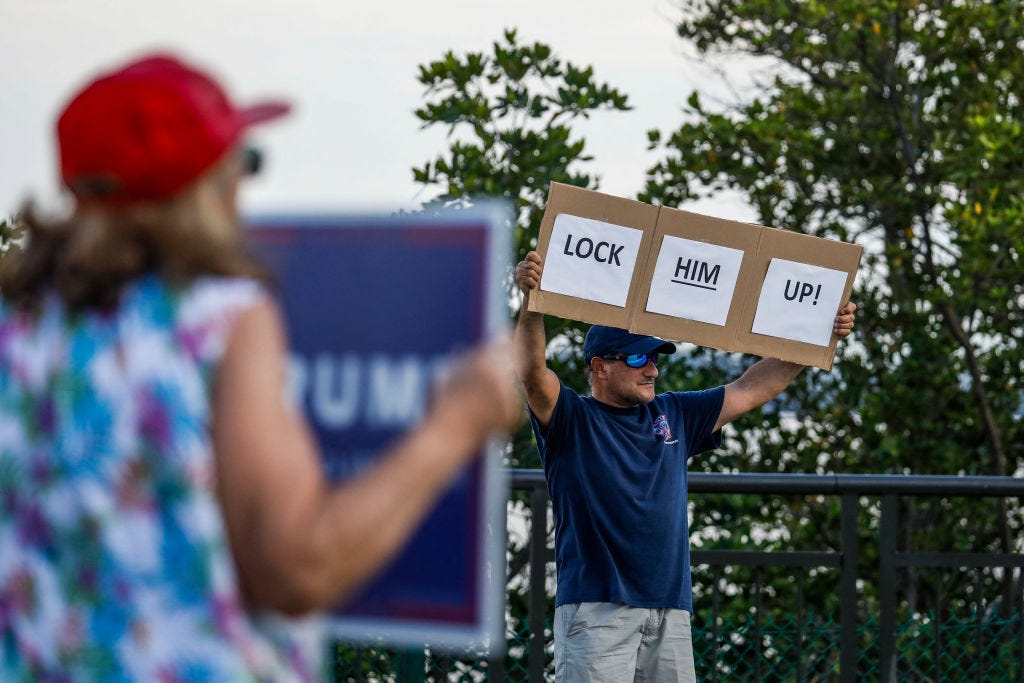Justice is served: Weekend reads for June 1, 2024
Trump trials, spelling bee champions, the not-so-empty frontier, and Willie on the border
The decision is in, and the jury in Donald Trump’s criminal hush-money trial found the former president guilty on all 34 felony counts. We’ll have to wait until July 11 for the sentencing, and until November to understand how this might impact the real trial — the upcoming election.
While right-wing critics are already dismissing the conviction as political, the outcome of a witch hunt or a show trial, a lot of coverage from the left has all along been minimizing this case as relatively inconsequential as compared to the federal cases. Those cases are still making their way through the system very slowly (thanks to the delaying tactics of the Supreme Court and Judge Aileen Cannon), and their future is uncertain. The New York case, on the other hand, is very real, and now very conclusive: the former president is a convicted felon
As legal analyst Roger Parloff told us this week, that’s what matters. Gangsters don’t go to prison for gangsterism; they go away for tax evasion, for the technicalities that escaped their attention.
Nobody has a crystal ball, so there’s no way to predict the ultimate legal outcome. And whatever happens, the election’s still upcoming, and Trump will likely remain on the ballot regardless. But as we look ahead, we’ve been reading what some of the most interesting legal thinkers out there have been saying about the Trump case, and we’re sharing some of that context with you this weekend.
In case you missed it
Economists Diego Känzig and Adrien Bilal told us why their latest calculations mean that solving climate change isn’t just necessary — it’s affordable
Roger Parloff made the case that what we saw in Trump’s New York criminal trial was the kind of smart prosecution that’s sent organized crime figures to prison in the past. Call it the Al Capone factor.
A new installment of our podcast is up today, featuring the full audio of our interview with FTC Chair Lina Khan on how her mission to break up monopoly power is a fight for freedom — and to show Americans government can work for them.
We hope the articles we’ve collected below for our subscribers to read challenge you to see the world in new ways. Thanks, as always, for reading The Ink and continuing to support us.
A request for those who haven’t yet joined us: The interviews and essays that we share here take research and editing and much more. We work hard, and we are eager to bring on more writers, more voices. But we need your help to keep this going. Join us today to support the kind of independent media you want to exist.
And we’re offering new paying subscribers a special discount of 20 percent. You will lock in this lower price forever if you join us now!
The Trump trials
How corruption stifles freedom
Tackling public cynicism, Steinglass rhetorically asked: “Who cares if Mr. Trump slept with a porn star ten years before the 2016 election?”
“Plenty of people feel that way, as I said,” Steinglass noted. “But, it’s harder to say that the American people don’t have the right to decide for themselves whether they care or not, that a handful of people sitting in a room can decide what information gets into those voters’ hands.” [Just Security]




